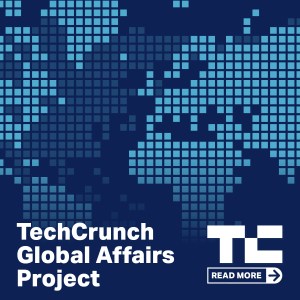The TechCrunch Global Affairs Project examines the increasingly intertwined relationship between the tech sector and global politics.
Quantum information science has long languished in an academic corner of the tech sector. But recent advances mean that the sector has taken on geopolitical significance. With several nations rushing to develop their own quantum systems, the quantum competition has started to resemble a new “space race.”
With the U.S. and China leading the way, European countries are feeling the pressure to step up their game, and several countries, as well as the European Union itself, have made a big push to invest in this space. But are European efforts too late and too fragmented to compete with the two tech giants?
U.S.-China: A race to the quantum advantage and beyond
Quantum computing seeks to exploit the counter-intuitive properties of quantum physics (that is to say, physics at the atomic or subatomic scale), such as entanglement and superposition. To do so, a quantum computer manipulates the states of particles (ions, electrons, photons) using lasers or electric and magnetic fields.

The United States and China have the most advanced quantum capabilities, with both claiming to have reached “quantum supremacy,” i.e., the ability to solve mathematical problems that would take a classical computer millions of years.
China’s efforts have been ongoing since around 2015, when the Edward Snowden revelations prompted anxiety over the extent of U.S. intelligence activities. Anxious about American capabilities, Beijing intensified its focus on quantum communications. Estimates of China’s spending on quantum research vary, but the country is the leading holder of patents in quantum communication and cryptography hardware and software. Chinese efforts in quantum computers are more recent, but Beijing has been moving fast. In December 2020 and again in June 2021, researchers from the University of Science and Technology of China (USTC) made credible claims to have achieved “quantum supremacy.”
Washington woke up to the possibility of China’s lead in quantum technologies when Beijing demonstrated its capacity in satellite-based quantum communications in 2016. In response, then-President Donald Trump launched a $1.2 billion National Quantum Initiative in 2018. Meanwhile — and perhaps most importantly — big technology firms started pouring huge sums into their own quantum research. IBM, which introduced the first two-qubit computer in the 1990s, is now exporting its Quantum System One machine. Though newer to the field, Google claimed to have achieved quantum supremacy in 2019 with a 53-qubit quantum processor based on superconductors.
Tech and VC heavyweights join the Disrupt 2025 agenda
Netflix, ElevenLabs, Wayve, Sequoia Capital — just a few of the heavy hitters joining the Disrupt 2025 agenda. They’re here to deliver the insights that fuel startup growth and sharpen your edge. Don’t miss the 20th anniversary of TechCrunch Disrupt, and a chance to learn from the top voices in tech — grab your ticket now and save up to $675 before prices rise.
Tech and VC heavyweights join the Disrupt 2025 agenda
Netflix, ElevenLabs, Wayve, Sequoia Capital — just a few of the heavy hitters joining the Disrupt 2025 agenda. They’re here to deliver the insights that fuel startup growth and sharpen your edge. Don’t miss the 20th anniversary of TechCrunch Disrupt, and a chance to learn from the top voices in tech — grab your ticket now and save up to $675 before prices rise.
Technologies with geopolitical implications
Driving China, the U.S. and other countries is a fear that lagging behind in quantum computing will pose cybersecurity, technological and economic risks.
First, a fully functioning quantum computer could allow an adversary to break any public encryption key currently in use. While it would take a classical computer 300 trillion years to crack a 2,048-bit RSA encryption key (used to secure online payments), a quantum computer with 4,000 stable qubits could in theory do the same in just 10 seconds. Such technology could be less than a decade away.
Second, European governments fear the consequences of becoming caught between American and Chinese quantum competition. Chief among those is quantum tech becoming subject to export restrictions. These should be coordinated among allied countries. Europeans remember how the U.S. embargoed the export of state-of-the-art computer equipment to France during the Cold War for fear that the technology could fall into Soviet hands. This motivated France to develop and support a national supercomputer industry.
Today, America’s European partners are concerned that in a tech cold war, they may struggle to access critical technologies or trade technologies with third countries. In addition to expanding its list of controlled items, the U.S. is adding more and more Chinese organizations to the “Entity List” (e.g., Chinese supercomputing centers in April 2021), thereby blocking technology exports — including from non-U.S. companies — to those entities. And as the list of restricted technologies grows, European companies feel the financial consequences in their international value chains. In the near future, some enabling technologies needed to make quantum computers work — such as cryostats — could be placed under control too.
But there are concerns about China as well. China has posed other types of risks to countries’ technological development, including challenging intellectual property rights and academic freedom, and it is well versed in economic coercion.
A final risk is economic. A disruptive technology like quantum computing will have massive industrial implications. While demonstrating “quantum supremacy” may constitute a scientific show of force, most governments, research labs and startups are in fact seeking to harness the “quantum advantage” — i.e., an acceleration of computing power sufficient to provide an advantage compared to classical machines for practical applications.
Considering its many use cases in complex simulation, optimization and deep learning, quantum computing will likely become a thriving business in the decades to come. Some quantum startups are already starting to go public in what is becoming a quantum investment frenzy. Europeans fear losing out on what stands to be a significant part of the 21st century economy.
Is Europe up to the task?
Unlike in most other digital technologies, Europe is well positioned in the global quantum race.
The U.K., Germany, France, the Netherlands, Austria and Switzerland all have significant quantum research capacities and flourishing startup ecosystems. Their governments, as well as the European Union, are making significant investments in quantum computing hardware and software and in quantum cryptography. In fact, the U.K. launched its National Quantum Technologies Program in 2013, well before the U.S. and China. As of 2021, Germany and France are just behind the U.S. in terms of public investment in quantum research and development, with approximately €2 billion and €1.8 billion, respectively. Amazon is even developing a quantum computer based on a self-correcting quantum bit (qubit) technology discovered by the French hardware startup Alice & Bob.
So, what stands in Europe’s way to become a serious challenger to the U.S. and China?
For one, the challenge for Europe is less fostering the emergence of startups but keeping them. Most promising European startups have a tendency not to grow on the continent due to inadequate venture capital. Europe’s AI successes are a cautionary tale; many recall how Google (Alphabet) acquired DeepMind, one of the most promising British startups. The story is repeating itself with PsiQuantum, a leading British startup, which settled in California in search of capital.
To counter that risk, European governments and the European Union have launched several initiatives in emerging and disruptive technologies with the goal of building European “technological sovereignty.” But then, does Europe even adopt its own technologies? EU procurement rules do not necessarily favor European suppliers in contrast to the U.S. “Buy American Act.” Today, EU member states are reluctant to favor European technology providers when more advanced or cheaper foreign options exist, as Germany recently did with its acquisition of an IBM machine. This may change with the International Procurement Instrument, a new piece of legislation currently being negotiated in Brussels, which would introduce a principle of reciprocity in the openness of public procurement markets.
Alongside the government, private companies will play a key role in shaping the future quantum industry through their choices of investments, partnerships and adoption of technologies. The choice to opt for IBM systems in the 1960s and 1970s has had a lasting effect in structuring the global computing market. Similar choices in quantum computing have the potential to shape the field for decades to come.
The dissatisfaction in Europe today about the scarcity of world-leading European tech firms only underscores the significance that early choices in the support for and adoption of technologies can have. If Europe is to be competitive in quantum with the U.S. and China in the years to come, it must not just maintain its current momentum but increase it.


